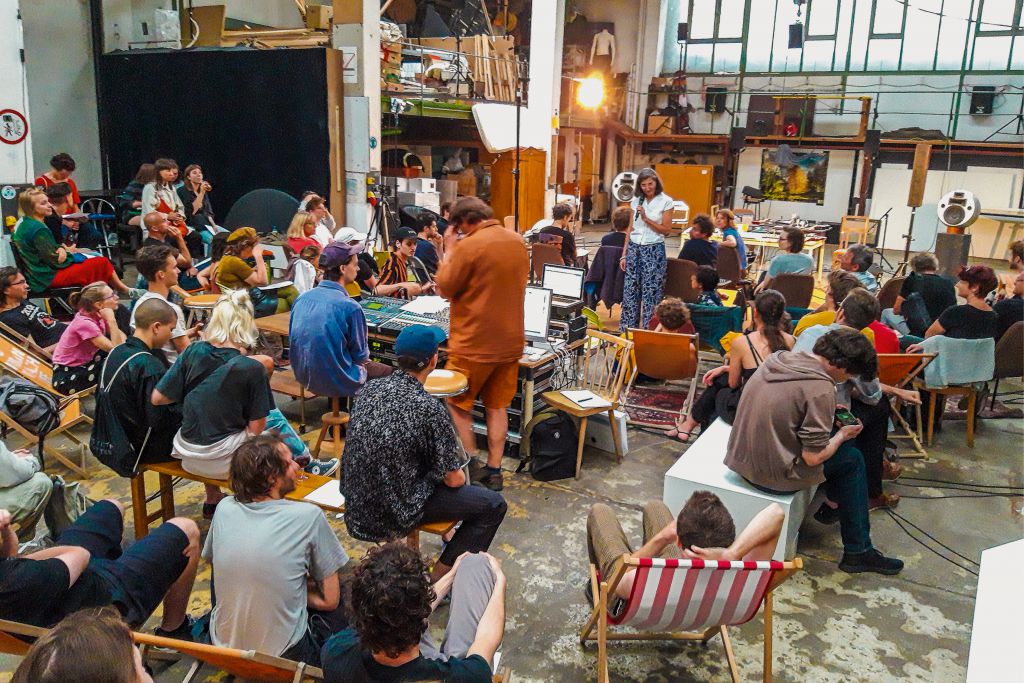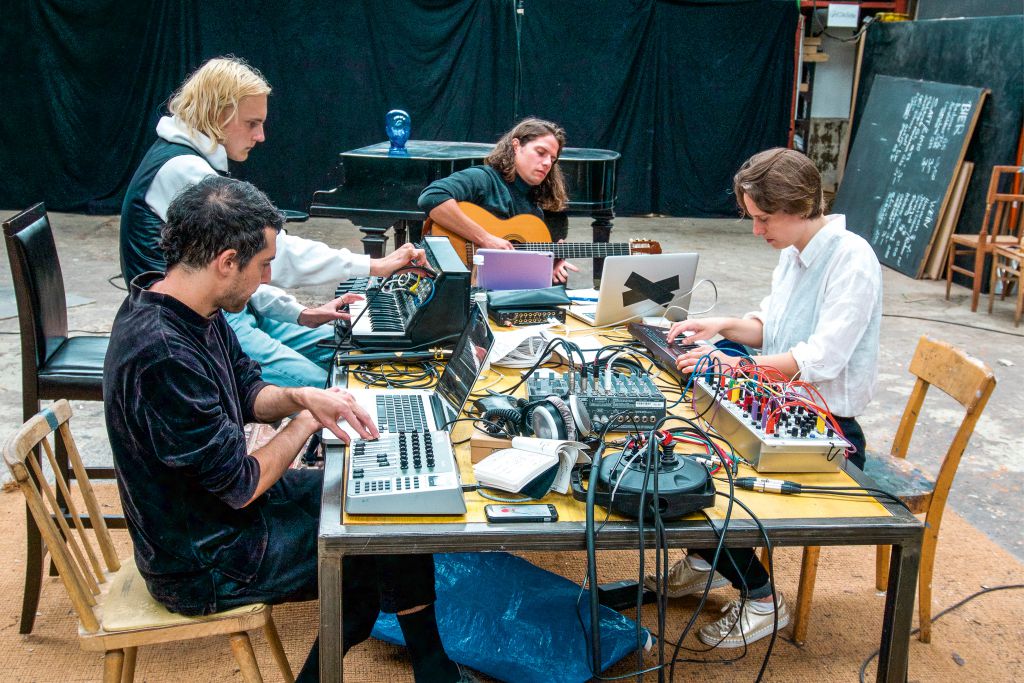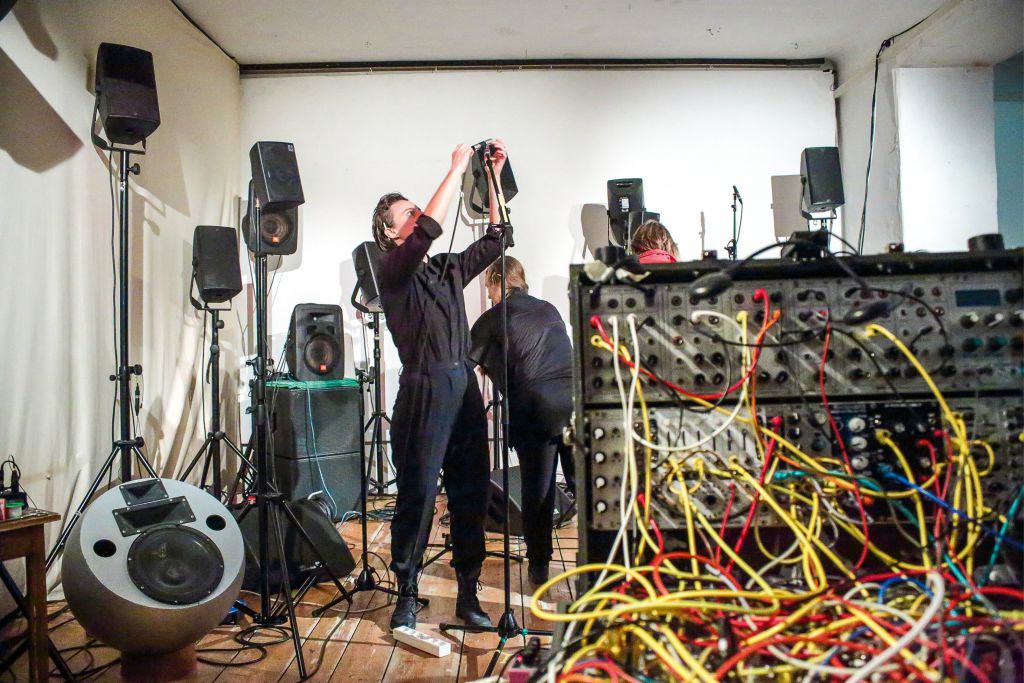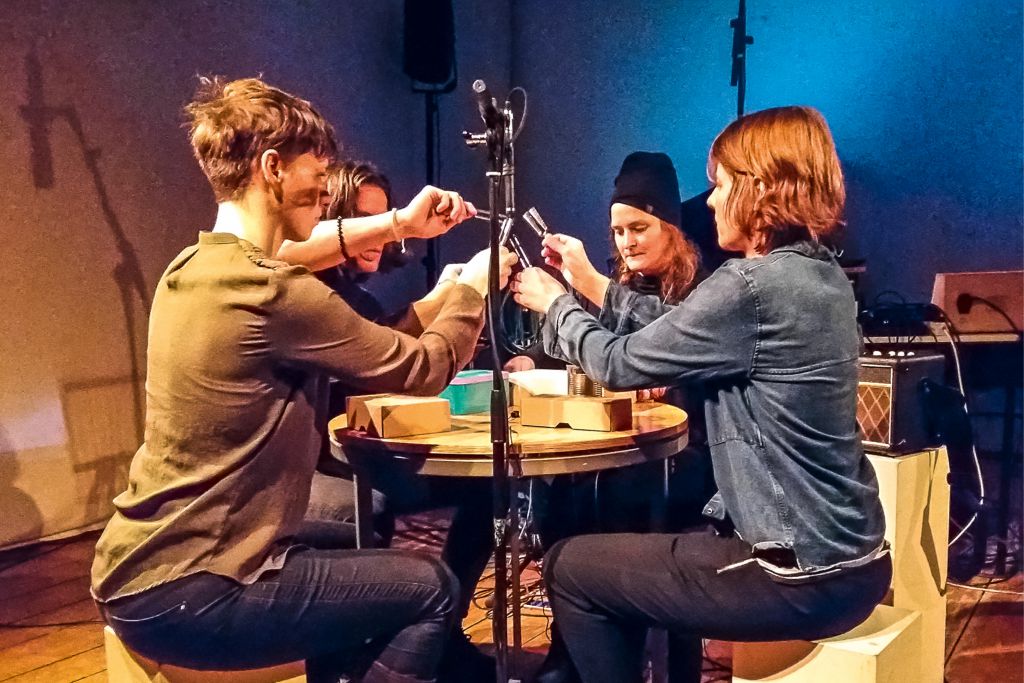Since its founding in 1963, the mdw’s Certificate Programme in Electroacoustic and Experimental Music (ELAK) has embodied an open, present-oriented, electronic sound-based platform for a wide range of practices in audible art ranging from musical composition to live electronics, sound design, inter-media installations, and performances. We also focus on the interfaces to instrumental and vocal music, the interpretation of contemporary music, and visual arts.

Our renaming of what was previously the Certificate Programme in Computer Music and Electronic Media serves to lend special emphasis to two central aspects: the one is our baseline work with electronic instruments, the electronic synthesiser, transformative processes both analogue and digital, hardware and software for music production, and of course transducers in the form of various microphones and loudspeakers. These tools from the worlds of studio technologies and algorithms come together to define electronic musical instruments with the most varied characteristics, instruments that often no longer simply produce sounds but much rather embody increasingly complex generators of musical structures, including in connection with sound analysis and machine learning. The other aspect is the explicitly experimental way of working that we teach. This means that concepts are developed via a critical, research-like, and open-ended approach as a matter of principle—without their immediate exploitation in an applied sense being a central concern. These activities’ strong ties to artistic research are shown by ongoing projects made possible by funds from the FWF’s PEEK (Programme for Arts-based Research of the Austrian Science fund) like Rotting sounds and the mdw’s Artistic Research Pilot Call.

The perspective on experimental music here has been shaped by musique acousmatique, which gained a foothold in Vienna during the 1970s thanks to former programme head Dieter Kaufmann’s prior experiences with the Paris-based Group de Recherches Musicales (GRM). Acousmatic art puts a special focus on the auditory and spatial experiences that can be developed by recording so-called “concrete sounds” (e. g., sounds from our acoustic environment), processing them in an artistic way, and ultimately projecting them into the performance space via a system of loudspeakers. This fundamental orientation of our programme is continually questioned as part of the aesthetic discourse that takes place in class as well as continually updated in terms of new technological developments. And in our field, the ongoing process of digitisation seen over the past few decades has entailed the fundamental transformation (from analogue physical media to ephemeral digital data) of the sonic material that is central to our work. This process has also empowered artists, with essential production tools and specialised knowledge becoming more easily accessible.
Since the very beginning, a low-threshold approach has been a fundamental and widely-known characteristic of the ELAK programme—where musical training in the tradition of European conservatories is not a prerequisite for admission. Instead, priority is given to individual creative and technical abilities (independent of particular schools and styles), to developmental potential in our thematic fields, and to diversity.

Students from all three years of the ELAK programme present their latest projects in semi-annual workshop concerts. And in recent years, we’ve made use of charismatic venues outside of the mdw such as Echoraum, Halle Steinergasse, mo.ë, and the WUK Project Room, attracting a great deal of audience interest each time. From the coming academic year onward, however, the lion’s share of our events will be held on the mdw campus at the Sound Theatre of the newly built Future Art Lab. And we’ll also be looking to open up this room to the outside world with an electroacoustic and experimental music concert series as well as with public teaching events focused on this repertoire.
Our medium-term goal is to convert the presently existing certificate programme into a full-fledged BA/MA programme while preserving its current character. Even though a great many of our alumni have indeed built successful careers for themselves, structuring our programme according to the Bologna System—with the attendant elimination of tuition fees—will make it more accessible while at the same time considerably enhancing its international significance (thanks to the attendant exchange and credit recognition opportunities) as well as its significance within the mdw, as a spearhead for the newest music and artistic research ranging all the way to externally funded projects and the artistic doctoral programme.


